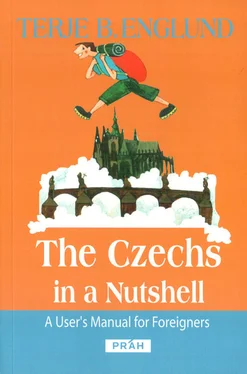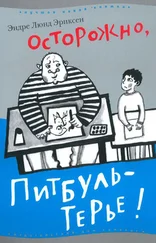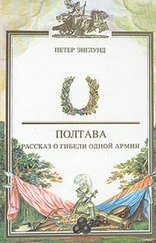This certainly sounds nice, but, unfortunately, there are few signs that an improvement is imminent. In October 2003, Czech traffic police carried out the largest crackdown in its history. The effort had, unfortunately, a minimal effect. During the following weekend, 25 persons — including three police officers — were killed in accidents, and the death toll on Czech roads had set yet another dark record.
If you happen to meet a Czech acquaintance on the street, he or she will probably greet you with the obligatory Jak se máš? (How are you?).
As in most other places on earth, this question does not necessarily reveal any deep interest in your person, but should rather be considered a common expression of social convention. And after all, the Czechs are apparently more polite than most people in Western Europe, taking extreme care to greet even the most distant acquaintance with an obligatory phrase (they are also extremely good at being rude — see: Cursing).
Yet this seemingly innocent Jak se máš? may represent a dangerous pitfall for the unsuspecting foreigner. In most Western countries, and especially in the US, you would try not to be too negative, stating something that makes you look successful and happy even though you’ve just been kicked out of your job or your wife has left you for your oldest pal.
With the Czechs, however, the problem is the opposite. If you don’t want to bother people with your personal problems and therefore answer something like Thanks, I'm really fine — life is just marvellous! your friend will probably reward you with a compassionate smile, and inwardly snort Jesus Christ, what a swaggering idiot!
This reaction is obviously a remnant of the communist era, when no sane person had any reason to be very happy or satisfied. Consequently, revealing a negative and pessimistic attitude towards life (see: Scepticism) only meant that you were a completely normal person. And even though the communist regime, thank God, now belongs to history, lots of Czechs are apparently still anxious not to be perceived as too positive or satisfied.
Some pundits will say that the main reason for this behaviour is envy. And as “evidence”, they’ll tell you the old anecdote about a global survey where sociologists tried to establish what people in a number of different countries wished for the future. To the French, nothing was more important than peace on earth, the Germanlonged to solve the problems of the Third World, while the Czech respondent wished of all his heart that his neighbour’s goats would kick the bucket.
There are those foreigners who don’t consider this as a bad joke, but as a cruel reality. Try to buy a new and impressive car, they’ll say. Park it on any public space in the Czech Republic, and then wait and see how long it will take until somebody, just out of pure envy, will make a long and ugly scratch in the enamel with a one- koruna coin. Maximum half an hour, the most pessimistic will say, adding that for the common Czech, envy is an even stronger urge than the sexual instinct.
Of course, this phenomenon can be explained with greater leniency towards the Czechs. Actually, it may seem that they are having a long-lasting and passionate love affair with the zlatá střední cesta (the golden, middle of the road). And the reason for this can probably be found in Czech history. Since most of the local nobilityfled the country after the Battle of White Mountainin 1620, the remaining Czechs became a socially and economically very homogenous lot.
So, while other nations got their elite from the nobility, the Czechs made farmers and townspeople or even artists (see: Mácha, Karel Hynek) their aristocracy. This process was fuelled by industrialization, which in Bohemiastarted earlier and on a far more massive scale than in any other part of the Austro- HungarianEmpire.
As a result, a vast proletariat, where everyone was equally rich (or, if you’d like, equally poor) as his neighbour, was created. Needless to say, the communists’ attempt to build a classless society didn’t exactly make the average Czech more tolerant towards people being better off.
One shouldn’t, of course, take this middle-of-the-road theory too far, but it’s tempting to make one more point: it may seem that the strong fixation on equality and the corresponding aversion to everything that goes beyond the average (i.e., what’s not commonly accepted as main stream) have led to a certain timidity towards the new and unknown (see: Foreigners).
Radical changes, be it in politics, fashion, architecture or whatever, are not good. “The status quo may have its bad sides,” the saying goes. “But at least we know what we have, and things could always be far worse.” Considering the Czechs’ turbulent history, this attitude seems if not extremely brave, at least understandable.
Call it a deeply rooted sense of egalitarianism; call it envy or aversion against extremes or even a combination of all three. In any case, foreigners should learn a basic lesson. If you ostentatiously present yourself as better, richer, more successful or even different than the common herd, you’re not only making a fool of yourself, but also provoking your surroundings.
Certainly, nothing prevents you from actually being better, richer and more successful — as long as you don’t show off! Logically, the expected and non-provoking answer to Jak se máš? fully corresponds to the Czechs’ aversion of extremes: Ujde to — I’m doing fairly good.
When the Polesor Hungarians, not to mention the Russians, speak about their nation’s greatest daughters and sons, they usually don’t care if the persons concerned actually lived in the country their whole lives, or if she or he gained fame as a citizen of another state. The Slovaksgo even further, by operating with long lists of “ worldfamous” countrymen who nobody outside Slovakia has ever heard of.
With the Czechs, the situation is, as usual, somewhat less straightforward. Not that emigration, be it for political or economic reasons, is something new to them. The reform theologian and pedagogue Jan Amos Komenský is probably the most famous of the earliest Czech emigrants. Like thousands of other prominent Czechs who fled the country after the Battle of White Mountainin 1620, Komenský spent the rest of his learned life roaming about Europe.
In the middle of the nineteenth century, the Emperor in Vienna once more made Czechs leave their mother country, this time by encouraging Bohemianand Moravianfarmers to settle in the Banat region in today’s Romania and in the northern parts of former Yugoslavia. In both areas, there are still Czech minority communities who vivaciously care for their cultural heritage, and you can thank industrious Czechs for founding the brewery that still produces ex-Yugoslavia’s only decent beer. There were even daredevils who settled in places like Volhynia in Western Ukraine and Kazakhstan.
The descendants of the nineteenth century emigrants don’t bother anybody today. The Czech minority in Romania, for instance, has even aroused widespread sympathy for the way they cling to their old traditions, including a charmingly archaic version of the Czech language, amidst the dreariness of the Banat. Similarly, when the remaining Volhynia Czechs — the majority of whom had already re-emigrated in the 1920s — settled in the Czech Republic early after the Velvet Revolution, they were mainly met with understanding and sympathy. Who would, after all, like to live in the vicinity of the Chernobyl nuclear power plant?
The “problems” start with those who emigrated from totalitarian Czechoslovakia in two big waves — in 1948, after the communist takeover (see: Albright, Madeleine), and then 20 years later, following the Warsaw Pact’s brotherly invasion of the country. Today, it’s hard to imagine a place on this planet where there isn’t a Czech immigrant community. The largest groups are in Canada, Australia, Germany and the United States, but individual Czechs are reported in such incredible places as the rain forest of Costa Rica.
Читать дальше








![Theresa Cheung - The Dream Dictionary from A to Z [Revised edition] - The Ultimate A–Z to Interpret the Secrets of Your Dreams](/books/692092/theresa-cheung-the-dream-dictionary-from-a-to-z-r-thumb.webp)



